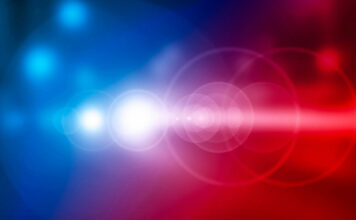If you are a shopper of any kind, chances are you probably stash plastic bags under the sink or keep them nicely folded around the house for future use. But as convenient as they are, lightweight, single-use plastic bags represent an environmental concern.
In King City, as in many parts of California, plastic bags are not accepted in curbside recycling. In fact, using plastic bags to contain recyclable materials (aluminum, paper, cardboard, glass, and plastic bottles) is the leading cause of recycling contamination, along with plastic films (packaging around beverage cases, for instance) and polystyrene foam (to-go food containers and beverage cups).
When WM collects and delivers recyclables to ReGen’s Material Recovery Facility (MRF) — the local and publicly owned infrastructure for recycling and reuse — these materials undergo a thorough sorting process. In the ideal scenario, recyclable items are fed to an intricate system of smart conveyor belts, where advanced technology such as optical sensors, magnets, crushers, shredders, and air jets rapidly sorts tons of material per hour. When the right items are placed in recycling carts, they quickly make their way through the recycling facility and are then baled and shipped to manufacturers, where they are used as feedstock to create new products and packaging.
Frequently, however, when items such as plastic bags end up in the recycling, it causes what the industry terms “contamination.” That usually happens when customers inadvertently mix recyclable materials with items considered trash.
Currently, plastic bags pose the biggest challenge to recycling efforts. Due to their flimsy nature, they often become entangled in the sorting system. When this happens, the process must be stopped so workers can climb the machinery to cut off plastic bags and free the sorting screens. This avoidable problem not only could put workers at unnecessary risk, but also disrupts the recycling process, leading to increased costs and reduced efficiency.
Plastic bags can also accidentally make their way into bales of sorted recyclable materials, thus reducing the value of those bales to companies that use the materials to make new products. Most of the time, bagged recyclable materials never make their way out of the plastic bag. They are tossed with municipal solid waste and sent to landfills to keep them from contaminating recyclables.
Recycling Right
In King City, only clean and dry plastic containers (#1, 2 & 5), glass containers, aluminum cans, paper, and cardboard are accepted in the recycling carts. If you’re not sure whether an item is recyclable, use the What Goes Where? (svswa.org/what-goes-where/). Keep food and liquids out of the recycling container, and always place unbagged items in your recycling cart.
Most curbside recycling programs in California do not accept plastic bags. Choose to reuse your plastic bags, bring them to drop-off centers, such as retail stores with plastic bag return programs, or dispose of them in the trash cart when they’re no longer needed.













